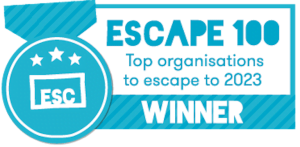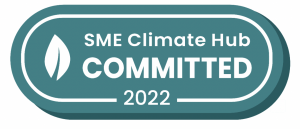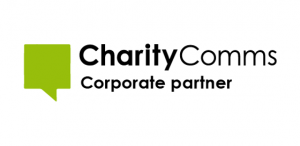In this article:
Taking on “scary” opportunities
A couple of months ago, I wrote a blog post about Empower adopting the Halo Code. If you haven’t read it, it might be worth having a quick skim through – not just because it’s a great read – it will give you some context for this blog post too.
The Halo Collective are an alliance of organisations and individuals working to create a future without hair discrimination, founded by young Black organisers. They are calling on every school and workplace in the UK to protect the rights of black students and staff by adopting the Halo Code.
Following the blog post, I was contacted by Kenya Lamb, an Equalities Policy Officer at the Criminal Justice Alliance (CJA). They were working to deliver a 12-month ‘Tackling Racial Inequality Project’ that aims to reduce racial disparities in the criminal justice system through better adherence to the Public Sector Equality Duty (PSED).
I went to business school and work in social media, so my first thought was, “this is so out of my depth”. Although doubtful, I kept reading. And I’m so glad I did. It turns out Kenya had read my blog post and wanted to know if I was interested in being a panellist at a conference the CJA was hosting.
The session she was getting in touch about – “Black Women in the CJS: Should Hair Become a Protected Characteristic?” – would have four panellists, and she wanted me to be one of them.
Empowering Civil Society Conference Day
Although I did still feel quite out of my depth, I was excited to be in a new environment, because one thing was certain, it was going to be a day of learning.
The conference day consisted of:
- Keynote speeches
- The launch of the Empowering Civil Society Toolkit
- Panel Discussions (one of these focusing on hair)
- “Odds Stacked Against Us” Film Premier
The session explored:
✔️Afro-hair discrimination
✔️The hair-discrimination that women in prison and working in policing face
✔️Why hair-discrimination needs to be taken seriously as another form of racism
The speakers included:
- Di ASkwith, Independent Monitoring Boards (IMB) member for HMP Eastwood Park and steering group member for the CJA/IMB Towards Race Equality Project
- L’myah Sherae. Director of Enact Equality and Founder of the All Party Parliament Group (APPG) for Race Equality in Education
- Andrew Pardy, Positive Action Team at Hertfordshire Constabulary

Learning in New Spaces
On the day of the conference, I ended up not just being part of this conversation on a topic I am extremely passionate about, I even ended up chairing the session.
The conversations we had during the session were amazing. Though mainly negative topics, it was great to be in an open and safe space. The diversity of the audience (and panellists) played a huge role – people from different careers, ethnicities, ages all sharing their experiences or expressing that they didn’t even know hair discrimination was such a widely experienced issue.
The other eye opener for a lot of people was that hair discrimination is taking place pretty much everywhere. We spoke about hair discrimination in prisons, schools, offices and just regular social circles.
The ultimate mutual understanding is that we all have a role to play in tackling hair discrimination. Whether it’s educating ourselves or educating others, there are ways to create more positive and inclusive spaces – and talking about things is always a good place to start.
My top Diversity, Equality and Inclusion takeaways
- Resources need to be made simple and accessible so people – in our case employers – need to know exactly what they’re entitled to and what benefits they have
- Identifying / challenging racial discrimination is a big part of creating a meaningful Diversity, Equality and Inclusion strategy. The best way to do this is by putting ourselves in environments where we connect with vulnerable communities.
- Being aware of subconscious biases. A great quote from one of the speakers that stuck with me, “being arrested doesn’t mean you’re a criminal”. It really made me think about how we associate certain things with information we think is factual.
- In the context of work, we definitely all assume certain things about people without even being aware we’re making those assumptions. One way we’re tackling this at Empower is through our blind recruitment process.
Overall it was a great opportunity to interact with a fascinating and open group of diverse people, and engage in open and safe conversations.
Now it’s your turn to explore and sign up to the Halo Code for your workplace.




